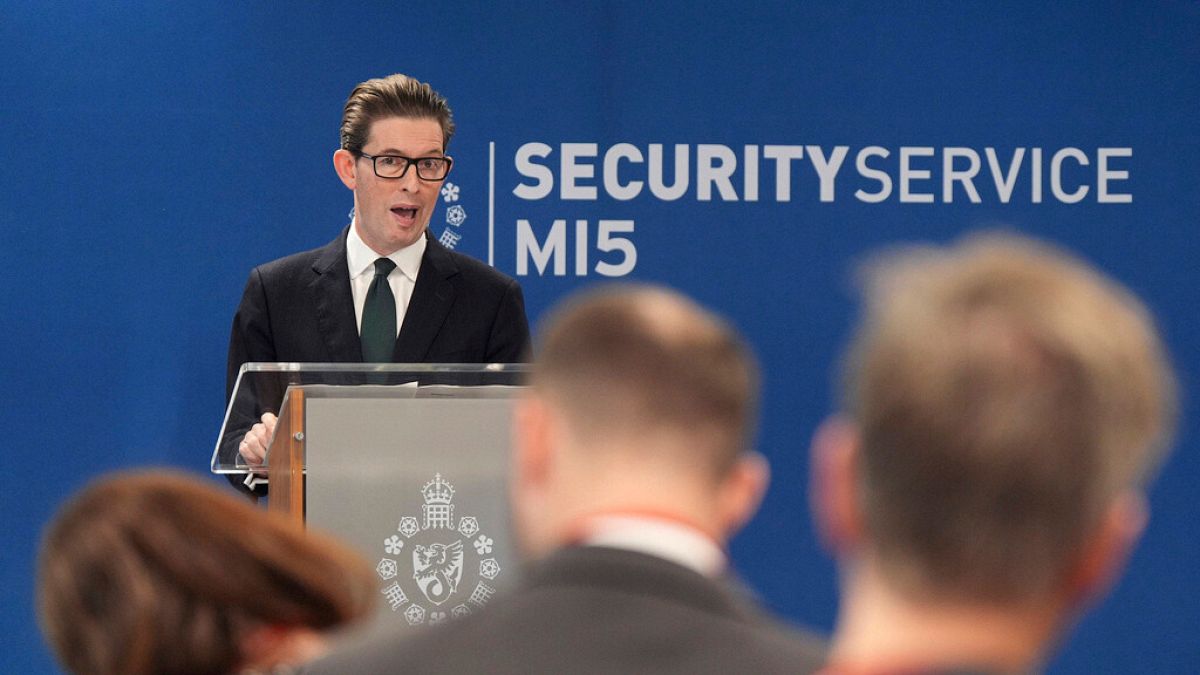The head of the UK’s domestic intelligence agency, MI5, recently revealed that the number of state-threat investigations has increased by 48% over the past year. In a rare public speech, Ken McCallum expressed concern about the rising number of assassination attempts on UK soil, particularly by Russia and Iran. He noted that these countries often recruit criminals to carry out attacks on their behalf, with Iran being singled out as a major threat due to its involvement in serious plots since 2022. McCallum also highlighted the potential for increased Iranian aggression in the UK, citing recent tensions in the Middle East and attacks on Israel by Iran. Despite the proliferation of conflicts in the Middle East, McCallum stated that they have not yet directly led to terror attacks in the UK but could pose a threat over time.
One of the key threats identified by McCallum is the increased involvement of hostile states, individual attackers, and a revived Afghan affiliate of the Islamic State group. He pointed to Russia’s military intelligence agency, GRU, as using tactics such as arson and sabotage to create chaos in Britain and other European countries. The UK’s official terror threat level is currently classified as “substantial,” indicating that an attack is likely. While the majority of terror plots in the UK are linked to Islamic extremist ideology, McCallum noted that a significant number also stem from the extreme right, online hatred, and conspiracy theories. He emphasized the evolving threat landscape, which now includes state-backed assassination and sabotage plots, in addition to traditional terrorist threats.
The increase in state-threat investigations reflects the growing complexity of the security environment in the UK and Europe. McCallum’s speech highlighted the interconnected nature of the threats posed by hostile states, individual actors, and extremist groups. He underlined the challenges posed by Iran, Russia, and China, which have been identified as major players in state-backed assassination and sabotage plots. McCallum’s warning about the potential for Iranian aggression in the UK underscores the need for heightened vigilance and security measures to counter these threats effectively.
The threat posed by Iran, Russia, and other hostile states highlights the need for continued cooperation and intelligence-sharing among security agencies in the UK and Europe. McCallum’s speech serves as a wake-up call to the potential dangers posed by state-sponsored actors and the evolving nature of terrorism in the region. The involvement of criminal networks and individuals in carrying out attacks on behalf of hostile states adds a new dimension to the security challenges faced by the UK. By raising awareness about the changing threat landscape, McCallum’s speech emphasizes the importance of adaptive and proactive security measures to protect against state-threats and terrorism.
In conclusion, the rise in state-threat investigations undertaken by the UK’s domestic intelligence agency reflects the increasing complexity and interconnected nature of security threats in the region. The involvement of hostile states, individual attackers, and extremist groups poses a significant challenge to the UK’s security infrastructure. McCallum’s warnings about state-backed assassination and sabotage plots underscore the need for enhanced vigilance and cooperation among security agencies to counter these threats effectively. As the threat landscape continues to evolve, it is essential for the UK and its European allies to stay ahead of emerging security challenges and adapt their strategies to ensure the safety and security of their citizens.










